
Solar energy has become increasingly popular as people seek sustainable and cost-effective energy solutions. This comprehensive guide covers everything you need to know about transitioning to solar living, from initial considerations to installation and maintenance, ensuring you make informed decisions every step of the way.
This post may contain affiliate links. As an Amazon affiliate, we earn from qualifying purchases. But we only recommend products we would use ourselves. View our Disclosure Policy here.
Things to Consider Before Installing Solar Panels
Assessing Your Energy Needs
Before installing solar panels, it’s crucial to understand your energy consumption. Analyze your electricity bills to determine your average daily usage. This will help you size your solar system appropriately. Remember, your energy needs might change, so consider future needs like electric vehicles or home expansions.
Evaluating Your Roof’s Suitability
Not all roofs are ideal for solar panel installation. Here are some factors to consider:
- Orientation and Tilt: South-facing roofs receive the most sunlight in the Northern Hemisphere. The angle of your roof should ideally match your latitude to maximize efficiency.
- Shading: Trees, buildings, or other structures that cast shadows on your roof can significantly reduce solar panel efficiency. Evaluate shading throughout the year, as it can change with the seasons.
- Roof Condition: Solar panels last 25-30 years, so your roof should be in good condition before installation. If your roof needs repairs or replacement, address these issues first.
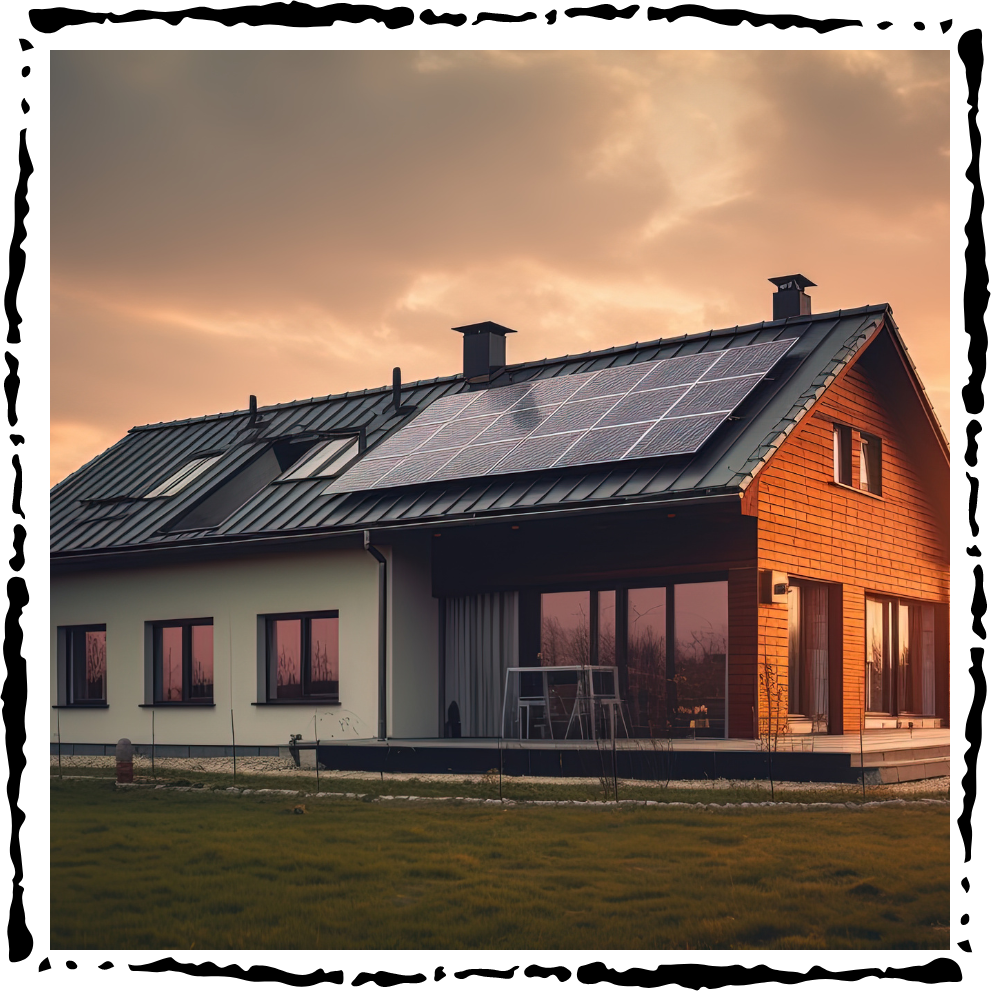
Financial Considerations
Solar panels require a significant upfront investment, but various financial factors can make them more affordable:
- Cost of Solar Panels: Prices have dropped significantly over the past decade, but the total cost varies based on the system size and complexity.
- Incentives and Rebates: Federal, state, and local incentives can substantially reduce the initial cost.
- Financing Options: Consider solar loans, leases, or power purchase agreements (PPAs). Each option has its pros and cons regarding ownership, maintenance, and long-term savings.
- Return on Investment (ROI): Calculate the payback period by comparing your upfront costs with the savings on your electricity bills. Most systems pay for themselves in 5-10 years, after which you can enjoy free electricity.
The Basics of the Benefits of Solar Energy
Environmental Benefits
Solar energy is a clean, renewable resource. Unlike fossil fuels, it doesn’t emit greenhouse gases or pollutants. By switching to solar, you can significantly reduce your carbon footprint. According to the U.S. Environmental Protection Agency (EPA), the average American home using solar power can offset about 3 to 4 tons of carbon dioxide annually.
Dr. Jane Smith, an environmental scientist, states, “Solar energy is pivotal in our fight against climate change. Each installation contributes to a greener, more sustainable future.”
Economic Benefits
Solar energy can lead to substantial long-term savings on electricity bills. Once the system is paid off, the electricity it generates is virtually free. Additionally, solar panels can increase your property’s value. Studies show that homes with solar panels sell for more than those without.
Energy Independence and Security
By generating your own electricity, you become less reliant on the grid and less vulnerable to electricity price fluctuations. In areas prone to power outages, solar systems paired with battery storage can provide backup power, enhancing your home’s resilience.
Job Creation
The solar industry is a significant source of employment. The Solar Energy Industries Association (SEIA) reports that the sector employs hundreds of thousands of people in various roles, from manufacturing to installation.
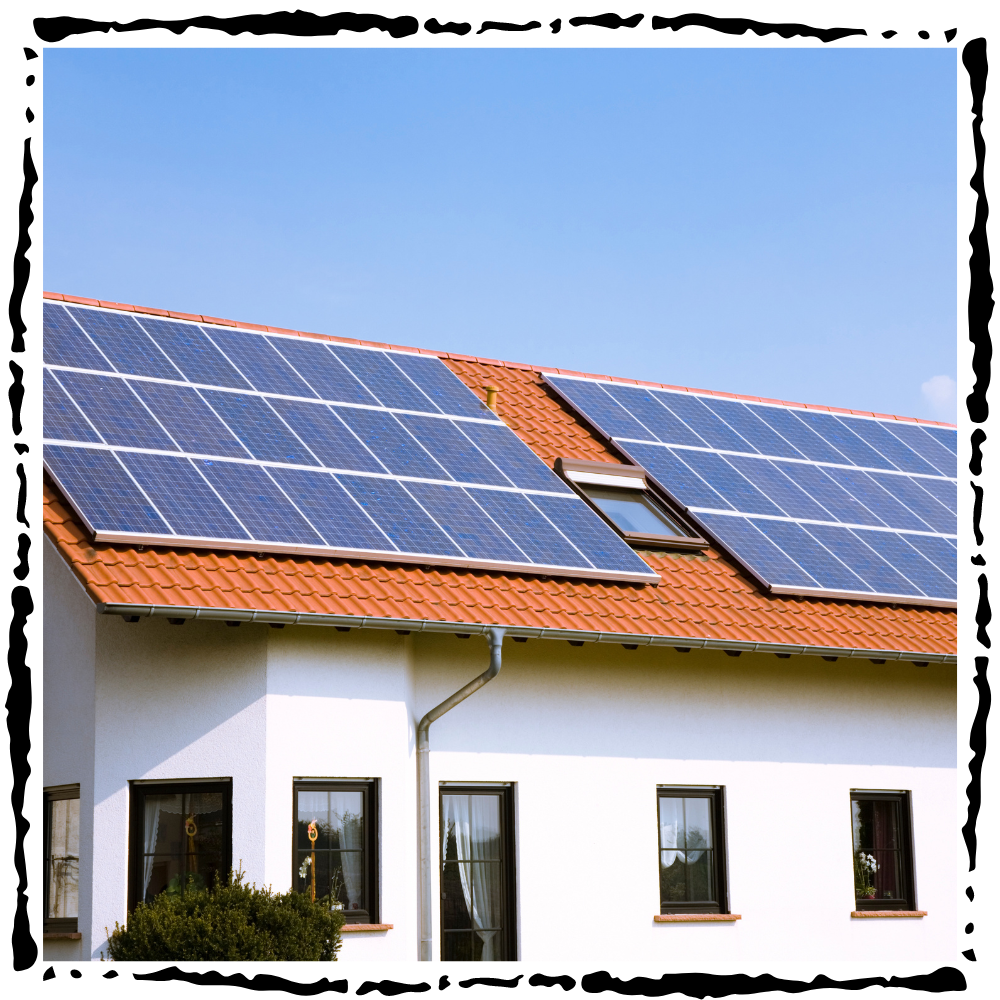
How to Find a Reputable Solar Company
Research and Reviews
Start by researching local solar companies. Look for those with a solid track record and positive customer reviews. Websites like Yelp, Google Reviews, and the Better Business Bureau can provide valuable insights into a company’s reputation.
Certifications and Licenses
Ensure the company has the necessary certifications and licenses. The North American Board of Certified Energy Practitioners (NABCEP) is a well-respected certification in the solar industry. Licensed contractors are more likely to adhere to local regulations and industry standards.
Experience and Expertise
Experience matters in the solar industry. Companies with a long history of installations are likely to have encountered and overcome various challenges. Ask potential installers about their experience with systems similar to what you’re considering.
Warranties and Maintenance
Reputable solar companies offer robust warranties covering both the equipment and installation. Typical warranties include a 25-year performance warranty for panels and a 10-year warranty for inverters. Additionally, inquire about their maintenance services to ensure your system remains in peak condition.
Obtain Multiple Quotes
Don’t settle for the first quote you receive. Obtain at least three quotes from different companies to compare prices, services, and system designs. This will give you a better understanding of the market rate and help you identify any outliers.
Michael Green, a veteran solar installer, advises, “Always choose a company with proven expertise. Experience and industry knowledge ensure your system is designed and installed correctly.”
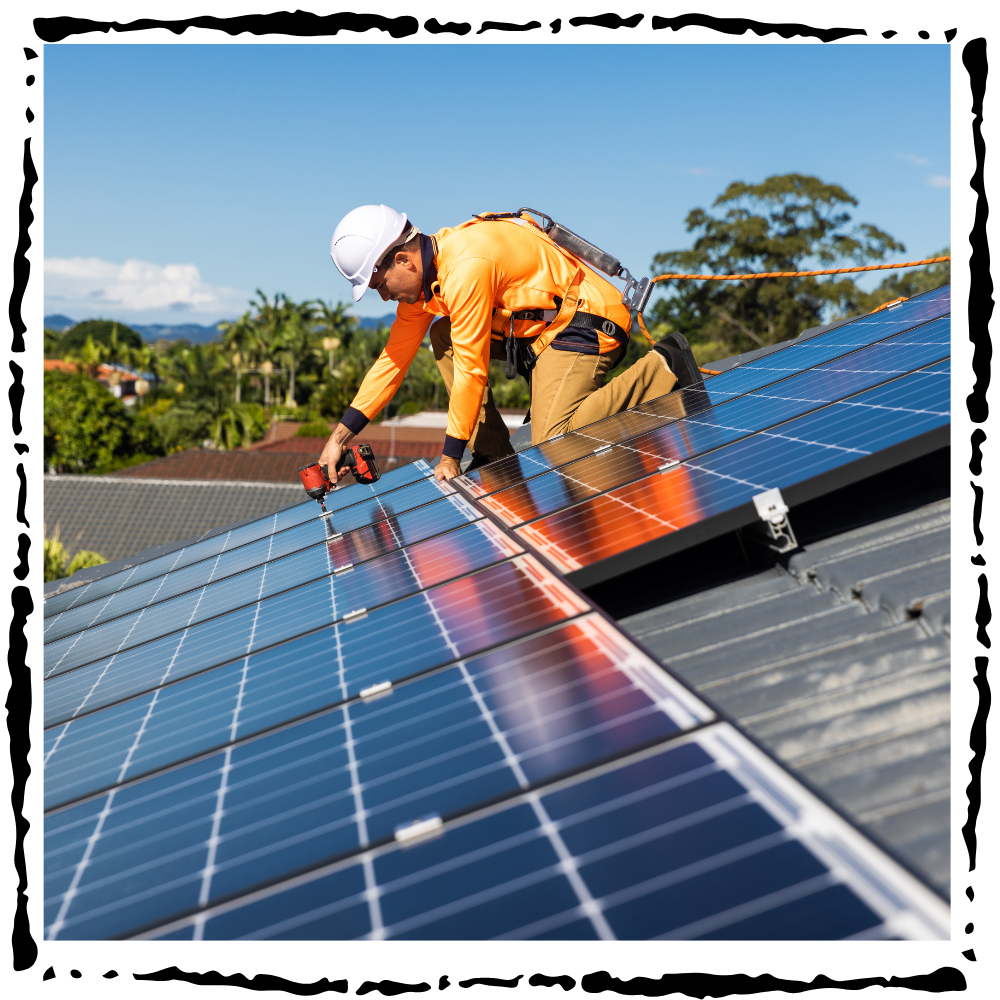
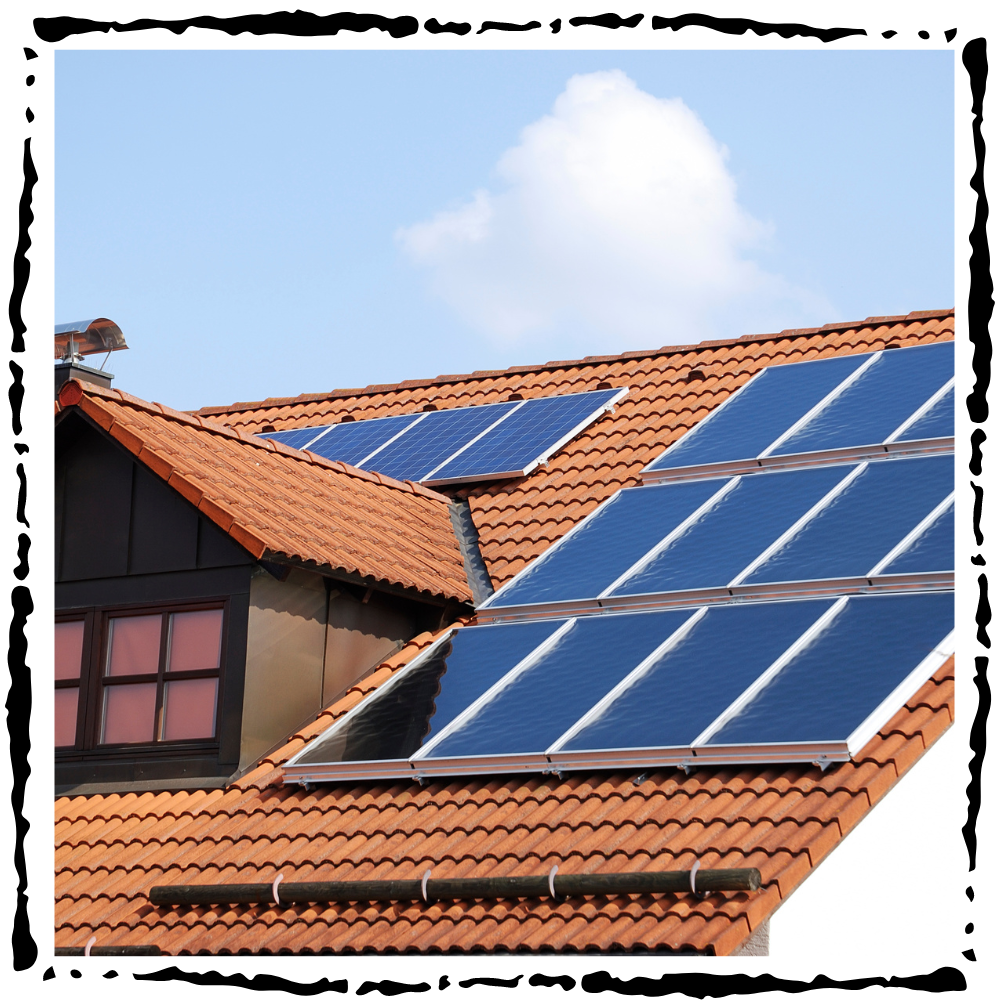
Installing Solar Panels on Your Own
DIY Solar Kits
For those with a strong DIY inclination, installing your own solar panels can be a rewarding project. DIY solar kits come with all the necessary components, including panels, inverters, mounting hardware, and wiring.
Assessing Your Skills
Self-installation requires a good understanding of electrical systems and construction. If you’re comfortable working on your roof and with electrical wiring, a DIY project might be feasible. Otherwise, it’s best to hire a professional.
Permits and Regulations
Even for DIY installations, you must comply with local building codes and regulations. This typically involves obtaining permits and having your installation inspected. Failure to comply can result in fines and dismantling of your system.
Installation Process
- Planning and Design: Determine the optimal placement and configuration for your panels.
- Mounting the Panels: Install the mounting hardware on your roof or ground mount.
- Wiring: Connect the panels to the inverter and the inverter to your home’s electrical system.
- Inspection: Have your installation inspected to ensure it meets local codes.
- Activation: Once approved, activate your system and start generating solar power.
Dr. Emily Johnson, Renewable Energy Scientist: “The shift to solar energy is not just a trend but a critical move toward a sustainable future. Advances in technology and reductions in cost are making it accessible to more people than ever before.”
Creating Your Own Source of Solar Energy
Building a Solar Generator
A solar generator is a portable solution for generating and storing solar power. Here’s how to build one:
- Components: You’ll need solar panels, a charge controller, a battery, and an inverter.
- Assembly: Connect the solar panels to the charge controller, then to the battery, and finally to the inverter.
- Usage: Solar generators are ideal for camping, RVs, or as a backup power source for small appliances.
Off-Grid Solar Systems
For those looking to completely disconnect from the grid, an off-grid solar system is the solution. This involves more extensive planning and larger systems to ensure you can generate and store enough power to meet your needs year-round.
Community Solar Projects
If installing solar panels on your property isn’t feasible, consider participating in a community solar project. These allow multiple households to share the benefits of a single solar installation, often managed by a third party. You can purchase or lease a portion of the solar power generated.
Solar Water Heaters
Solar energy can also be used to heat water. Solar water heaters use panels to collect solar energy, which is then used to heat water stored in a tank. These systems can significantly reduce your water heating bills and are relatively easy to install.
Robert Davis, Solar Energy Engineer: “Proper installation and maintenance are key to maximizing the lifespan and efficiency of solar panels. Regular cleaning and inspections can prevent minor issues from becoming major problems.”

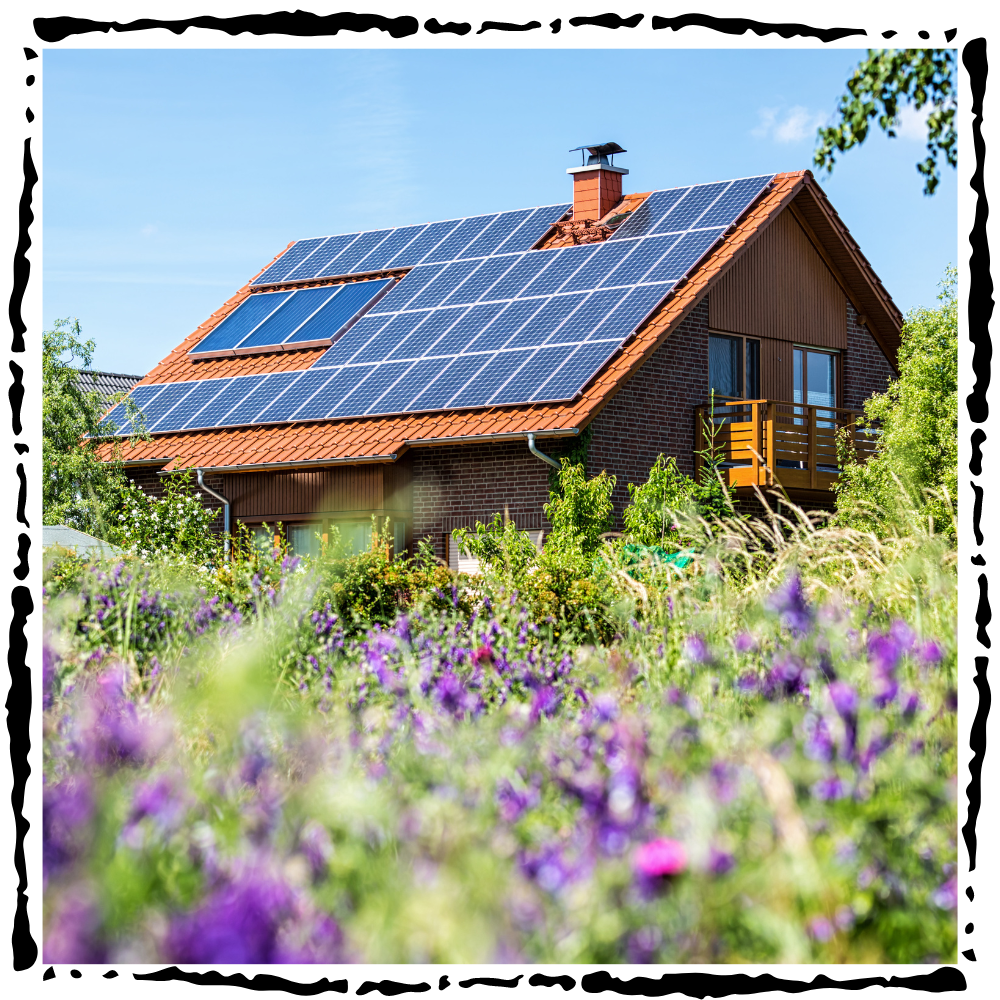
Maintenance of Solar Panels
Maintaining your solar panels is essential to ensure they operate at peak efficiency and have a long lifespan. Proper maintenance maximizes your investment and the environmental benefits of your solar system. Here’s a detailed guide on maintaining your solar panels.
Regular Cleaning
Dust, dirt, bird droppings, and other debris can accumulate on your solar panels, reducing their efficiency. Regular cleaning is essential to maintain optimal performance.
- Frequency: Clean your panels every six months. In areas with high dust, pollen, or bird activity, more frequent cleaning might be necessary.
- Method: Use a soft brush or a sponge with soapy water to gently clean the panels. Avoid abrasive materials that could scratch the surface. A garden hose can be effective for rinsing off loose dirt.
- Safety: If your panels are on the roof, ensure you take appropriate safety measures. Use a stable ladder and consider wearing a harness if the roof is steep. Alternatively, hire professional cleaners who have the right equipment and experience.
Monitoring System Performance
Keeping an eye on your system’s performance helps you detect issues early and maintain efficiency.
- Performance Monitoring: Most modern solar systems come with monitoring software or apps that allow you to track energy production in real-time. Regularly check these metrics to ensure your system is performing as expected.
- Visual Inspections: Periodically inspect your panels for any visible damage or debris. Check for cracks, chips, or loose connections that could affect performance.
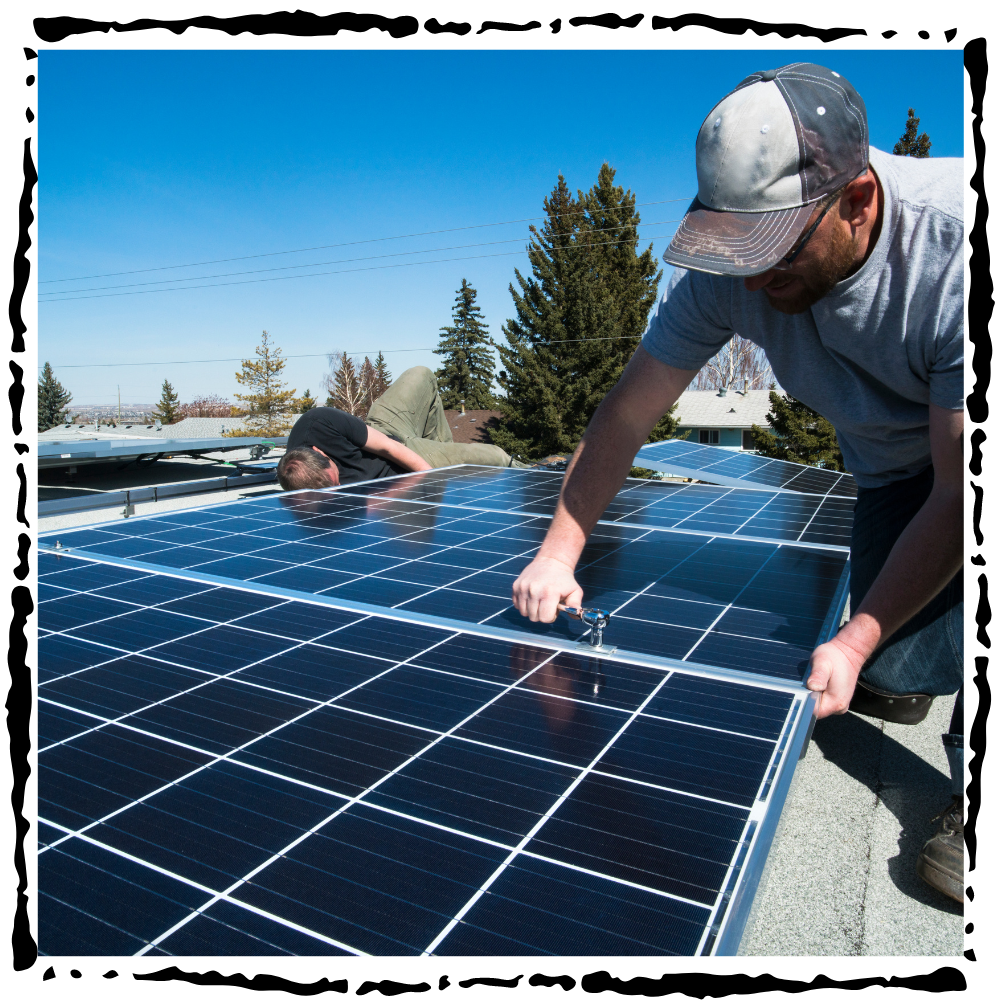
Professional Maintenance
Annual professional inspections can catch problems that you might miss.
- Inverter Checks: The inverter is a critical component of your solar system. Ensure it’s functioning correctly, as it converts the DC electricity generated by your panels into usable AC electricity for your home.
- Electrical Components: Professionals can check the wiring and electrical components to ensure there are no loose connections or corrosion that could impact performance.
- Roof Integrity: Ensure that your roof remains in good condition, as damage can affect both the roof and the panel mounts.
Seasonal Adjustments
Depending on your location, seasonal adjustments might be necessary to maintain optimal performance.
- Winter Maintenance: In areas with heavy snowfall, you may need to remove snow from your panels. Use a roof rake or other non-abrasive tools to prevent damage.
- Angle Adjustments: Some systems allow for manual adjustments to the tilt angle of the panels. Adjusting the angle seasonally can maximize sun exposure and efficiency.
Regular maintenance of your solar panels ensures they continue to produce energy efficiently and extends their operational lifespan. By keeping your panels clean, monitoring performance, and scheduling professional inspections, you can enjoy the full benefits of your solar investment for many years.
Embracing solar living is a smart choice for both environmental and economic reasons. Thoroughly evaluating your energy needs, roof suitability, and financial options ensures a well-informed decision. The benefits of solar energy, including reduced carbon footprint, long-term savings, energy independence, and job creation, make it a compelling option for homeowners and businesses alike.
Finding a reputable solar company involves careful research, considering certifications, experience, and warranties. For those with a DIY inclination, self-installation can be rewarding but requires a good understanding of electrical systems and local regulations.
Maintaining your solar panels through regular cleaning and performance monitoring is essential for maximizing efficiency and lifespan. By keeping your panels clean and promptly addressing any issues, you ensure continuous optimal energy production.
Expert insights from industry professionals emphasize the importance of proper installation, maintenance, and the role of government incentives in promoting solar adoption. Whether you’re reducing your carbon footprint, saving on energy costs, or seeking energy independence, solar energy offers a sustainable pathway to a brighter, greener future. Investing in solar power is not just an investment in your home but also in the planet, paving the way for a more sustainable and resilient energy system.
Here at Patio Escape, it is always our recommendation to contact a professional before venturing into self-installation for the safety precautions involved in solar panel installation. We wish you a happy greener living!
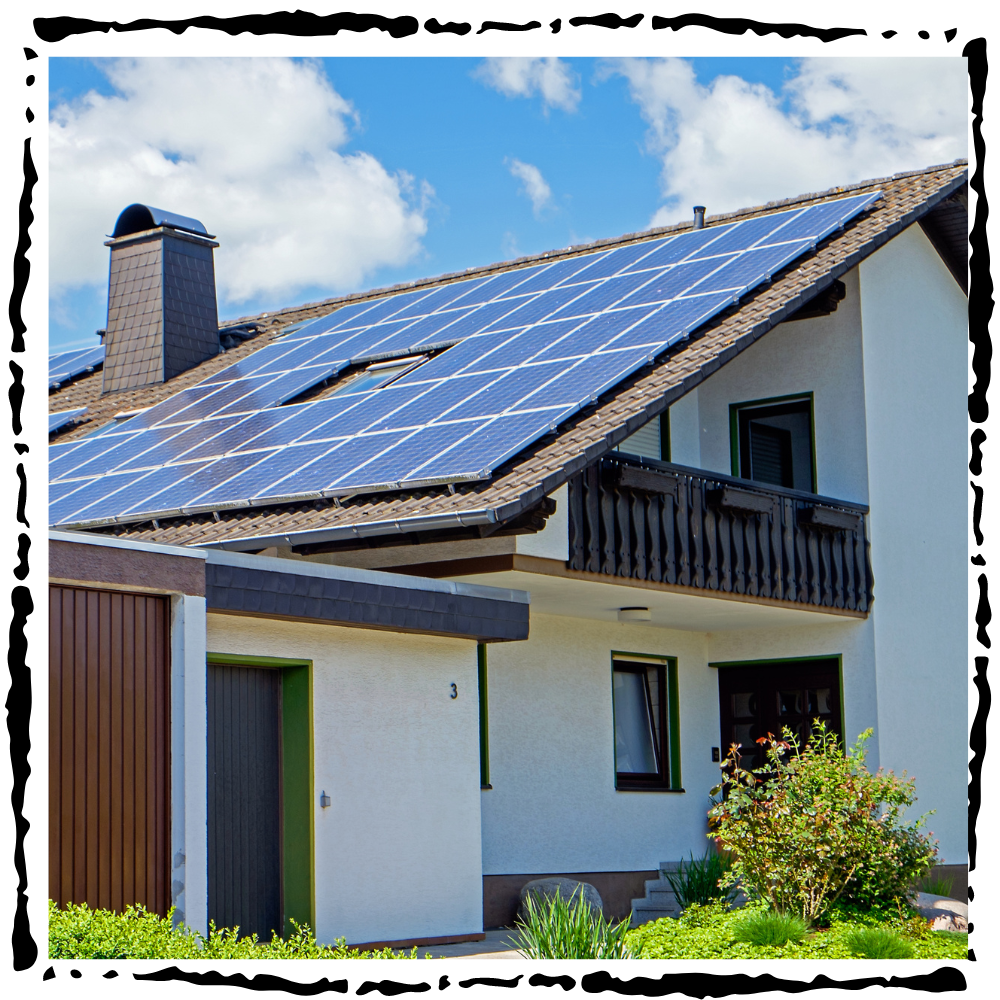
Other articles you may find interesting. We hope you enjoy our tips, tricks, and ideas.
